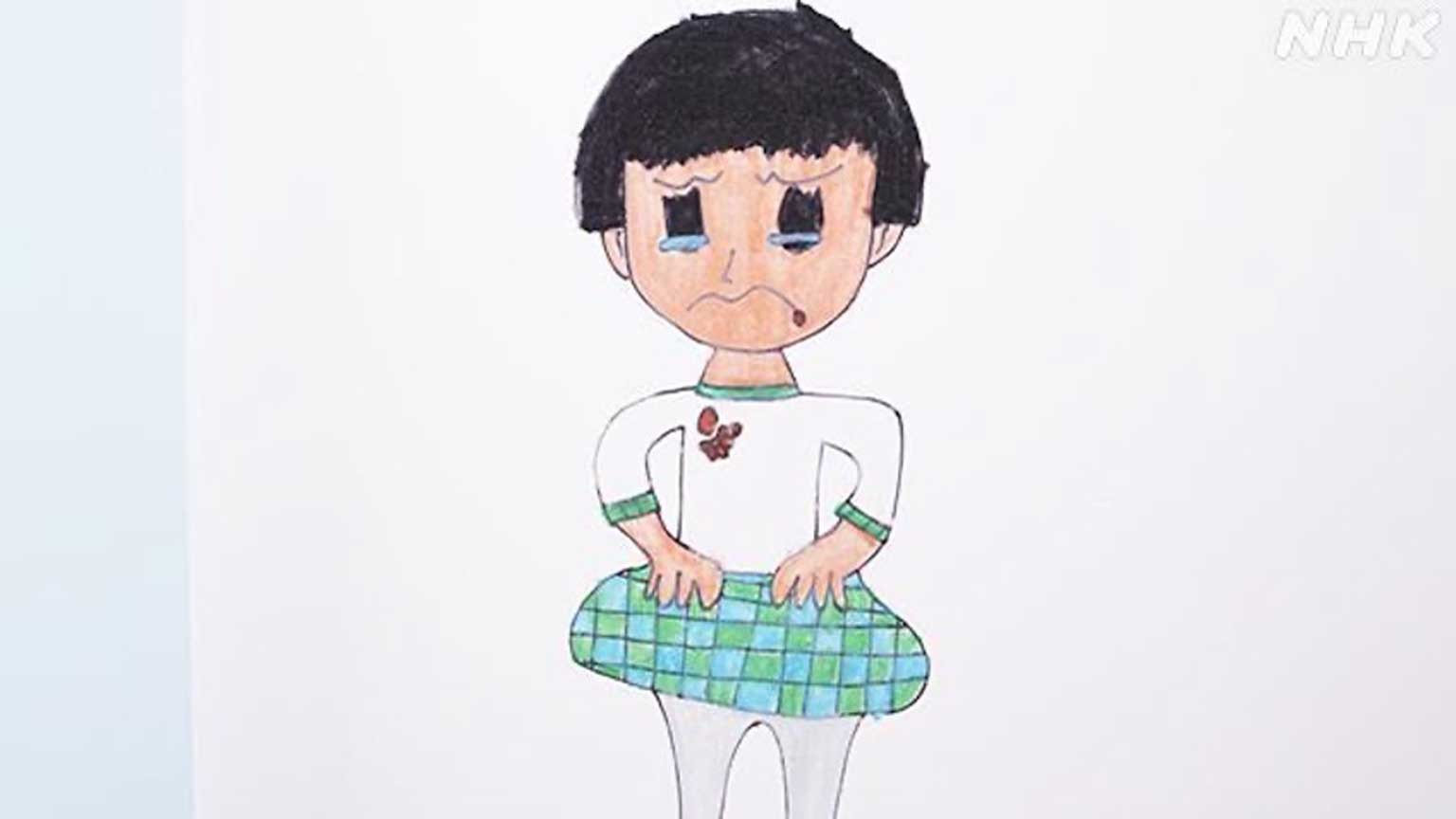Ayano's book is titled "I Want to be a Boy," and the stories within are just as unflinching in their honesty.
In one passage, Ayano recalls spilling food at nursery school and requiring a change of clothes. Ayano's mother had no idea the spares she had packed would end up humiliating her child.
Wearing a skirt in front of the other kids reduced the three-year-old to tears. Ayano's mother was growing increasingly confused.
"I felt Ayano would stop saying such things eventually," she says. "I thought it was simply an age thing."
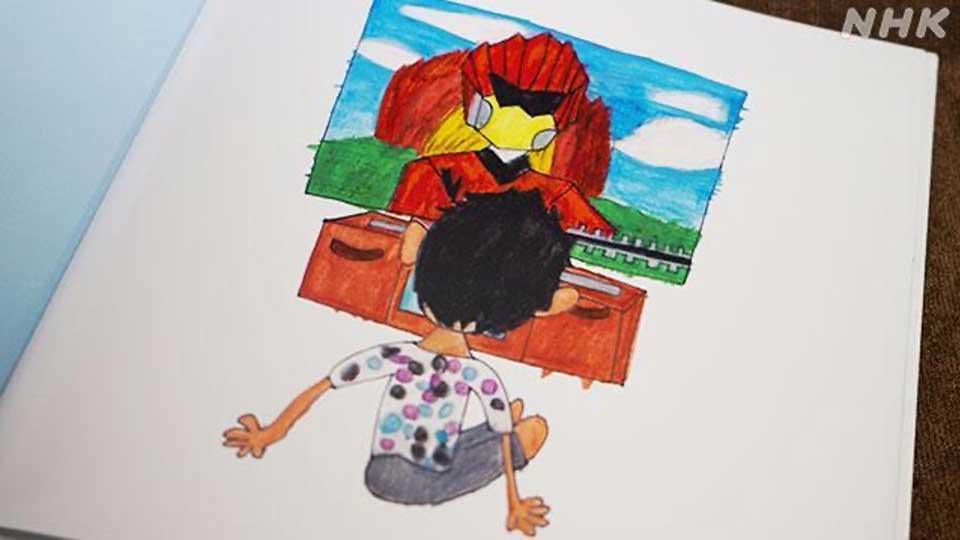
Not just a phase
But the signs had been there for a while. Ayano was never interested in playing with dolls, and always preferred short hair. And those traits continued into elementary school.
Ayano's book details just how difficult it was to even use the restroom.
One day, a friend asked, "Are you a boy, or a girl?"
"A girl."
Simply saying it caused Ayano's throat to tighten up. "I don't want to line up for the toilet. I want to hide somewhere."
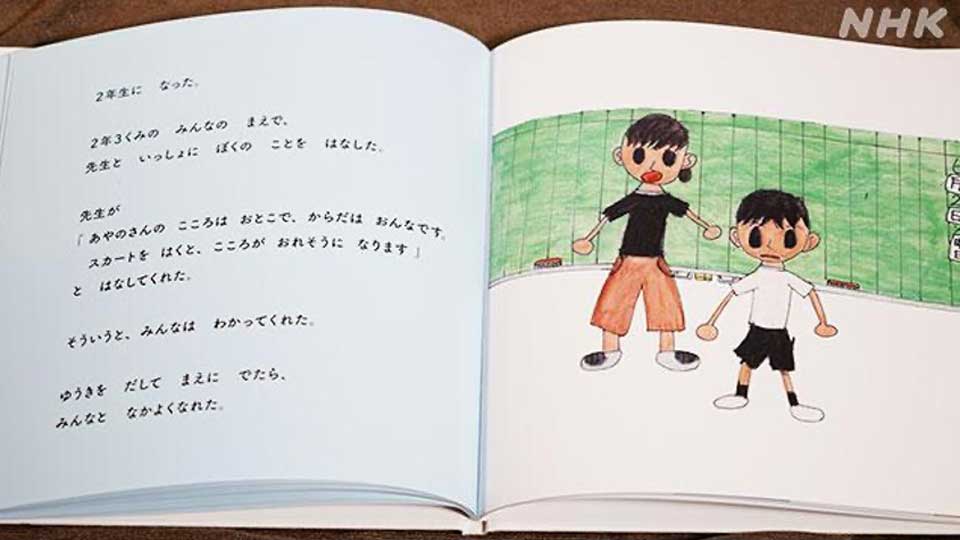
Restroom ordeals
After school one day, Ayano broke down in tears.
"I can't even go to the toilet. I can't leave the classroom during breaks because I'm scared of being picked on by the other kids. If I die, I want to come back as a boy."
Ayano's mother finally understood the pain her child was going through.
"Until that moment, I hadn't realized the psychological pressure Ayano was enduring," she says. "I had been stuck, hoping my child's wish to become a boy would just disappear."
By the second year of elementary school, Ayano couldn't bear those feelings of isolation any longer, and sought the help of a teacher.
Speaking out
After a discussion, Ayano felt it was time to stand up in front of the class.
"Ayano identifies as a boy," said the teacher.
"And Ayano feels depressed wearing a skirt."
Finally, everyone knew.
"When I gathered my courage and took a step forward, I became closer to everyone," says Ayano.
A teacher soon came up with the idea for a picture book. And Ayano jumped at the chance.
"The enthusiasm surprised me," says Ayano's mother. "I could really sense this desire to be understood."
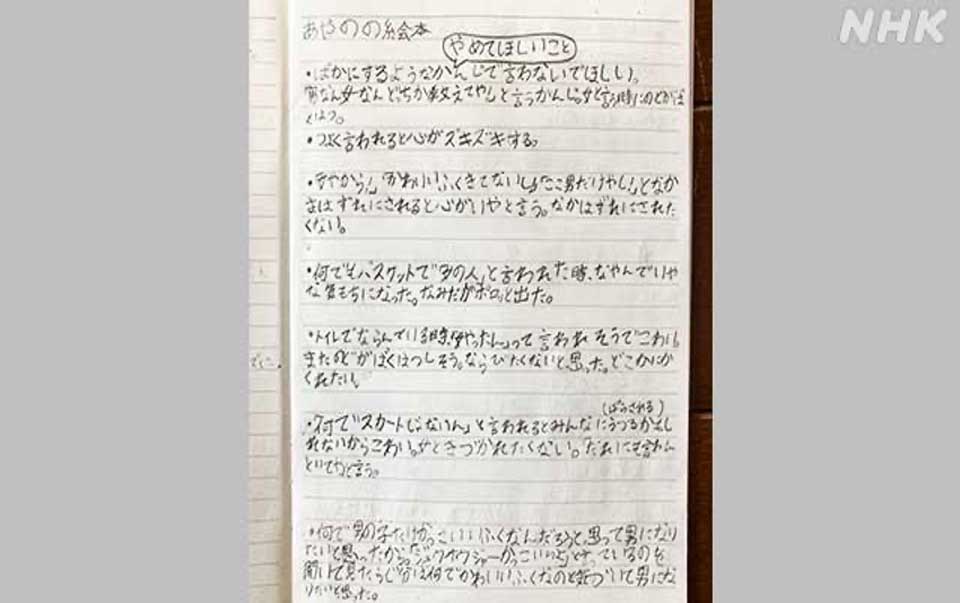
Painful memories
Still, making the book was not easy. There were moments when Ayano would suddenly burst into tears, remembering all the pain.
But after about two months, "I Want to Be a Boy" was complete.
Ayano's mother felt the book would be a great way of conveying her child's feelings. She asked a publisher to print 200 copies that could be distributed to other children.
Ayano's teacher even read the book aloud in class, and the response was reassuringly positive.
Some children praised Ayano for speaking up; others said they no longer judge people by gender.
Some still teased, but the other classmates were more willing to come to Ayano's defense now.
Collectively, they had concluded that Ayano is simply Ayano.
"We became much closer after I found the courage to speak up. Being able to tell everyone my story was the best part of creating the book," says Ayano.
Ayano's mother sees it as a turning point, but not just for her child.
"Creating this picture book together also inspired me to change," she says.
Helping others
Ayano hopes to be a source of comfort for LGBTQ children across Japan:
"I felt like I was the only person in the world with those struggles. And I was worried about my future. But now, I want to tell other kids who are suffering that they're not alone."
Last year, Tokyo-based NPO ReBit surveyed around 2,700 LGBTQ people aged from their teens to 30s. Approximately half of those in their teens said they had contemplated suicide at least once. Shockingly, 14% said they have actually attempted to take their own life.
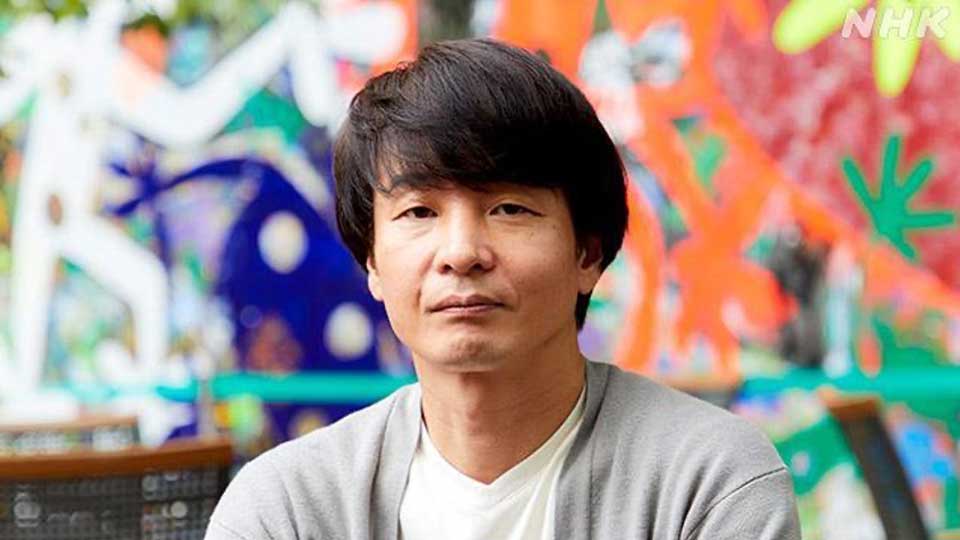
Professor Taniguchi Hiroyuki is a human rights expert at Aoyama Gakuin University. He says Japan needs to create more places for LGBTQ children to openly talk about their feelings.
"We need to build up their self-esteem," he says. "The important thing is that they can talk about their struggles and feel safe. And above all, adults need to respect their opinions."
